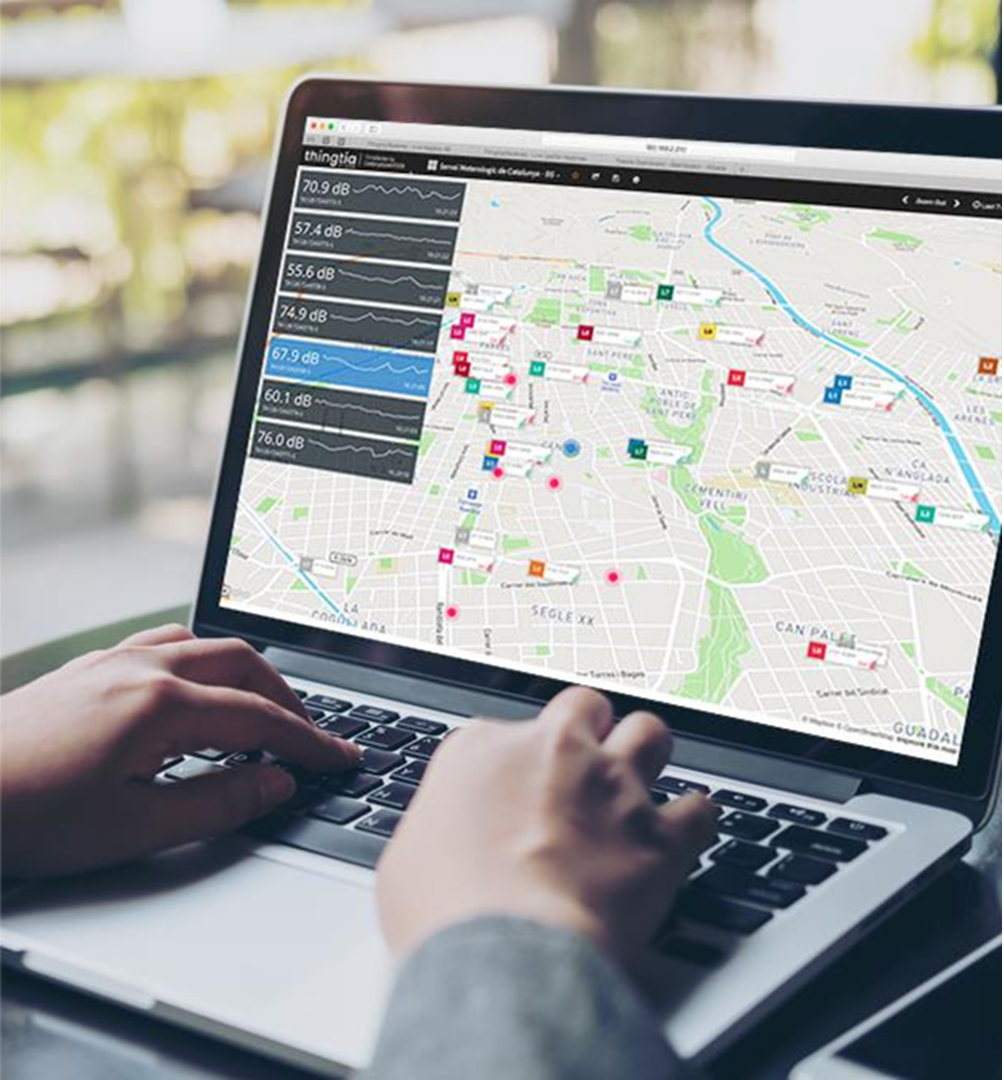
Barcelona has 15,000 sensors installed all over the city and connected to the cloud gathering all types of data. To monitor these sensors and the data they collect in a single cloud platform, in 2013 the Barcelona city council set up the the Sentilo project, through the tech firm Open Trends. Sentilo is an open source system that allows the sensors to be interconnected in the cities or regions that install them. Through this project specifically developed for the city of Barcelona, the Open Trends partners decided to turn the project into a product and create, in February this year, the Thingtia spin-off. “What Thingtia does is take Sentilo and put it in the cloud through rental plans so that the company or institution can then use it,” says Paco Robles, CEO and the spin-off’s only employee.
Thingtia offers an Internet of Things (IoT) platform based on the Sentilo program but in the cloud and complemented with additional services, such as vertical solutions for companies and support and technical advice. The idea is to “compile or send information from the sensors and pass it on to whoever needs it," says Robles. Thanks to Thingtia, any public or private organisation can use the platform without licensing or management costs and can interpret the data generated by the sensors.
Thingtia brings the Sentilo platform to the cloud, developed by the Barcelona city council and Open Trends
Different public and private bodies have implemented Sentilo as a sensor platform, such as the Terrassa city council, the Cambrils city council, the Reus city council, AMB, the Catalan Water Agency and the Dubai city council. Thanks to these sensors, a great deal of information about the cities can be gathered, from who is walking down Passeig de Gràcia to the level of air pollution or energy consumption.
Different applications for smart cities
Thingtia has different applications for cities. One of the projects that the startup has carried out, together with the Terrassa city council, is controlling the watering of lawns. Using its technology, gardeners know whether lawns need watering or not, or whether it has rained a lot and the automatic sprinkler system needs to be disconnected. Another application, also in Terrassa, monitors the decibels from a passing bus, in other words, the noise pollution.

Paco Robles, CEO of Thingtia
But these are not the only applications offered by Thingtia. Thanks to the sensors installed in cities, the platform gathers information to find out the level of air pollution in a city, the energy consumption, the free parking spaces in the street or whether the recycling containers in a neighbourhood or full or empty.
“Today our business is not about making projects, but rather offering our platform to the world’s smart cities”
As the startup says, the Internet of Things offers a lot of vertical solutions targeted at different areas: monitoring energy, watering, lighting and predicting maintenance, among other things. “But these solutions do not share information and do not optimise infrastructure. Thingtia takes things a step further and offers a flexible Internet of Things platform in the cloud that does not depend on specific technology, products or suppliers,” says Robles.
In all, the startup has carried out between 15 and 20 projects, some in cooperation with Barcelona Activa, “but today our business is not in projects, but rather in making our platform available to the world’s smart cities,” says Robles.